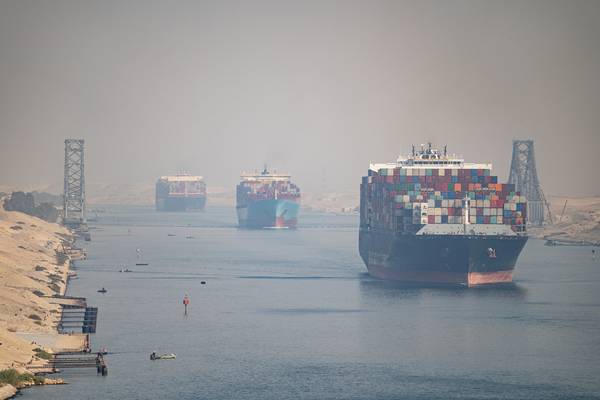
Two of the world's top shipping companies, Maersk and Hapag-Lloyd, said on Thursday they did not see an immediate return to Red Sea after the ceasefire between Hamas and Israel was announced.
Both companies said they would be closely monitoring the situation in the Middle East and would return to the Red Sea once it was safe to do so.
"The agreement has only just been reached. We will closely analyze the latest developments and their impact on the security situation in the Red Sea," a Hapag-Lloyd spokesperson told Reuters.
"It is still too early to speculate about timing," a Maersk spokesperson said.
Hapag-Lloyd had already flagged in June that a ceasefire would not mean an immediate resume of passage through the Suez Canal, as attacks from Yemen-based Houthi militants could still be possible.
Rearranging the schedule would take between four and six weeks, a company spokesperson said at the time.
Disruptions in the Middle East have caused shipping companies to divert their vessels towards longer routes, often forcing their container ships around Africa's Cape of Good Hope, pushing freight rates higher and disrupting global ocean shipping.



